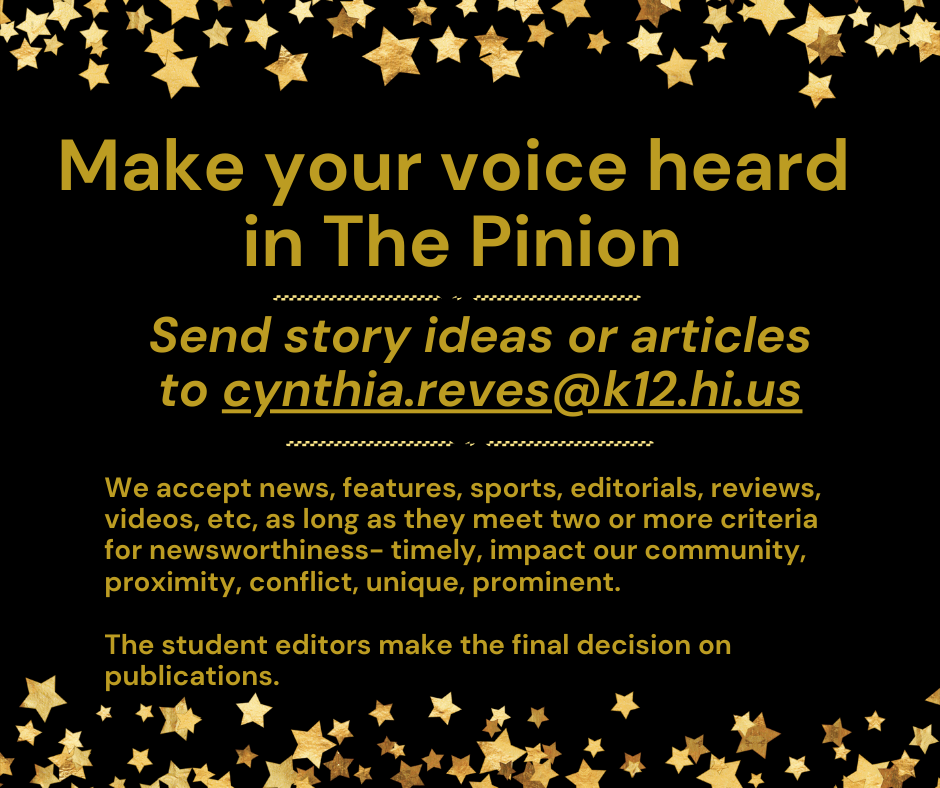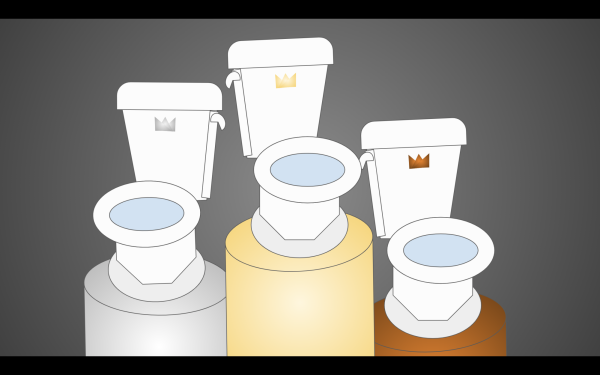Toxic Positivity – It’s Right In Front of You
By Cheska Orias
Toxic Positivity – Putting on a mask of happiness in favor of expressing sadness or anger. Good vibes only are allowed in here.
February 2, 2023
Clinical psychologist Dr. Jamie Zuckerman defined Toxic positivity as “the assumption, either by one’s self or others, that despite a person’s emotional pain or difficult situation, they should only have a positive mindset or — my pet peeve term — ‘positive vibes.’” IA survey of 233 people by Science of People found they experienced toxic positivity from someone in the past week.
Toxic positivity sees negative emotions as ‘bad’ or ‘wrong.’ It pushes positivity and happiness onto someone denying, minimizing or invalidating authentic human feelings.
Positive thinking itself isn’t a harmful thing and can greatly help an individual, but over time and with the wrong kind of thinking it can become detrimental to one’s well-being, uch as masking one’s true feelings, not facing problems, brushing them off, and feeling guilty for being sad, angry, or disappointed. A 10-year Stanford study found that denying negative feelings was linked to higher levels of depression. As Science of People put it, negative feelings that are denied will continue to build up over time and become a bigger problem.
Junior Daniella Jeanelle Bilango knows these feelings all too well. “When you open up to someone about these personal things, they’ll reply with ‘others have it worse than you’ or ‘you’ll get over it.’ It just makes me feel worse about the situation.”
She also knows people who favor being happy rather than confronting how they genuinely feel. Although over time, they hit their limit and break down. Bilango even had people break down before her, just trying to explain why. Why do they feel this way in their jumbled-up emotions? Bilango also recounts a person that has been going through a lot. Being in their last year of high school, they’ve been very pressured, and toxic positivity greatly pressures him. “Whenever I see them at school, they try to be happy and stay positive while I know they’re breaking inside.”
In March 2023, The Pinion conducted a survey and 51 students responded. Freshmen, sophomores, juniors, and seniors, were asked a series of questions relating to the topic of ‘Toxic Positivity.’
The definition provided was –
Toxic Positivity happens when people believe that having any negative thoughts about anything should be avoided; that they should still be happy and positive even if it hurts. Such examples that can be considered toxic positivity under the circumstances are “Stop being so negative,” “It could be worse,” “Just think on the bright side,” and “Smile, crying won’t help.”
A little less than half (47.1%) know what the term toxic positivity means. Students might not know the term ‘toxic positivity’, but they know what it feels like as About 95% of the respondents indicated they tend to ignore their feelings in favor of being happy even though they aren’t, with reasons ranging from for themselves, friends, family, social status, and more. More than half answered that they had experienced toxic positivity at least once in the past week, with about 18% indicating experiencing it more than three times that week.
The survey included a short written response for students to share their experiences with toxic positivity. Here are some of those responses:
- “Teachers saying to ‘Just be happy, it’s not as bad when I was in school”
- “Just be happy. I don’t get why you have to be sad when you can be happy”
- “I’ve been through worse”
- “Why are you stressing out it’s not even that bad”
- “At least you don’t have to worry about paying bills and food, you’re just a student and not even a good one, just average.”
Respondents also gave on personal tips they would give to people dealing with toxic positivity.
- “Be true to yourself, let yourself be sad, feel emotions”
- “Find other people to0 talk to that will ACTUALLY make you feel better”
- “Tune it out and understand that you can feel whatever emotion you’re feeling at the moment. Understanding your emotions builds strong emotional intelligence which is better for you in the long term in understanding why you’re feeling a certain way”
- “Have mental health days, take a break to do things you enjoy”
- “Tell the person that emotions can’t change in an instant”
Toxic positivity is a real thing and it’s not something to ignore. These students’ experiences are examples that it is real and not make-believe.
Remember, it’s okay to feel sad and not okay. Be vulnerable. Bottling it up will only make it worse. There are people out there that will listen and not make you push away your problems. Mental health comes first above all, and understanding how you feel and what your body needs is one thing that can help you.
—
If you are still struggling or just really need someone to talk to, here are some resources provided below. Crisis Text Line: Text ‘ALOHA’ to 741741
Crisis Line: 832-3100 (Oahu) / 1-808-753-6879 (Neighbor Islands)
National Suicid Prevention Lifeline: 1-808-2730-TALK (8255)
Self-Harm Hotline: 1-808-366-8288
–
To learn more about toxic positivity, check out these resources
Toxic Positivity: Why Positive Vibes are Ruining You














